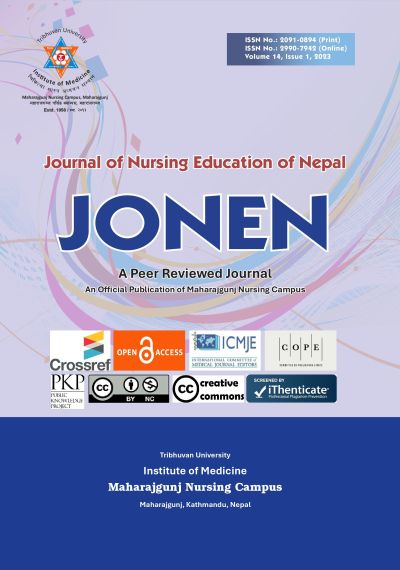Cardiovascular Health Risk Behavior Among Undergraduate Students of Purbanchal University School of Health Sciences, Morang, Nepal
Keywords:
Cardiovascular Disease, Health Risk Behavior, Undergraduate StudentsAbstract
Introduction: Cardiovascular diseases (CVDs) are listed as one of the main causes of mortality and morbidity. Lifestyle-related behavioral risk factors are mainly implicated in the increased burden of cardiovascular diseases. The study aims to assess the cardiovascular health risk behavior among undergraduate students.
Methods: A descriptive cross-sectional study was conducted from March to August 2020 among 180 undergraduate university students. Data was collected online through a web link using an edited WHO-NCD stepwise approach questionnaire and analyzed using SPSS. Ethical clearance was obtained from the IRC of Purbanchal University School of Health Sciences.
Results: The majority (96.7%) of respondents were female, nearly half (47.2%) were from nursing, and most (81.7%) were unmarried and had a single family (76.7%). Among them, 5.4% were occasional smokers. Most (72.2%) of the students started to consume alcohol. Although 81% of them thought that lowering salt intake in their diet was very important, 74.4% of students often eat processed foods high in salt. Almost all (95%) of students said that extra salt or salty sauce in their diet could cause health problems. However 65% of them were not doing anything regularly to control salt intake, and 77% of the students did not practice any physical exercise. Few (5.6%) and (2.2%) students had raised blood pressure and total cholesterol levels, respectively.
Conclusion: The undergraduate students have insufficient physical activity, inadequate fruit intake, and use of high levels of salt and salty products. Therefore, intervention is required to reduce these high-risk behaviors, related to cardiovascular diseases in the future.
Downloads
Downloads
Published
How to Cite
Issue
Section
License
Copyright (c) 2023 Journal of Nursing Education of Nepal

This work is licensed under a Creative Commons Attribution-NonCommercial 4.0 International License.
This license enables reusers to distribute, remix, adapt, and build upon the material in any medium or format for noncommercial purposes only, and only so long as attribution is given to the creator.




